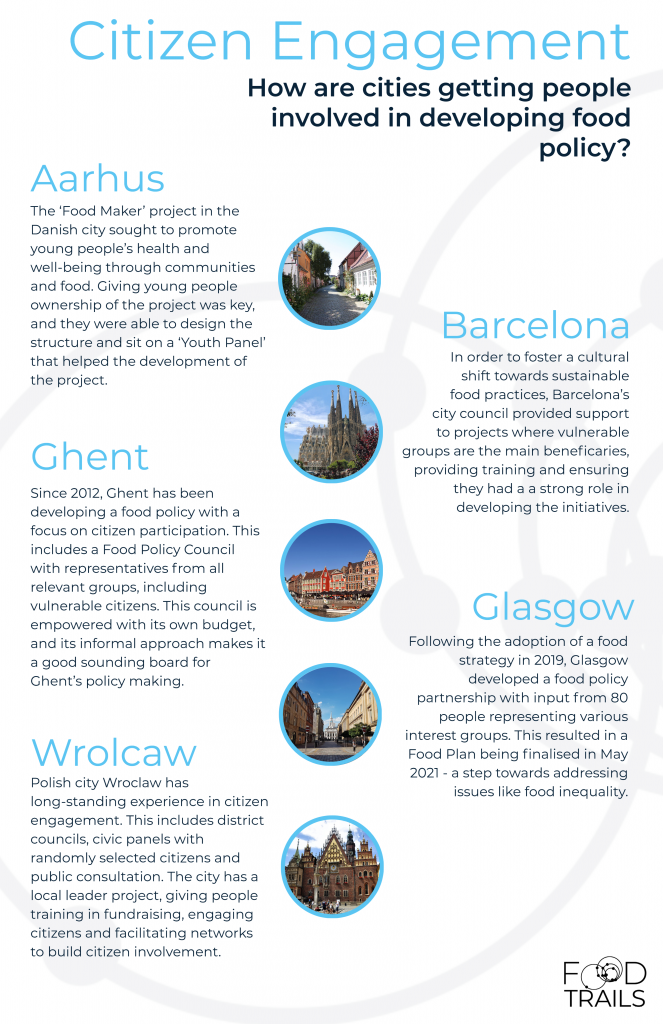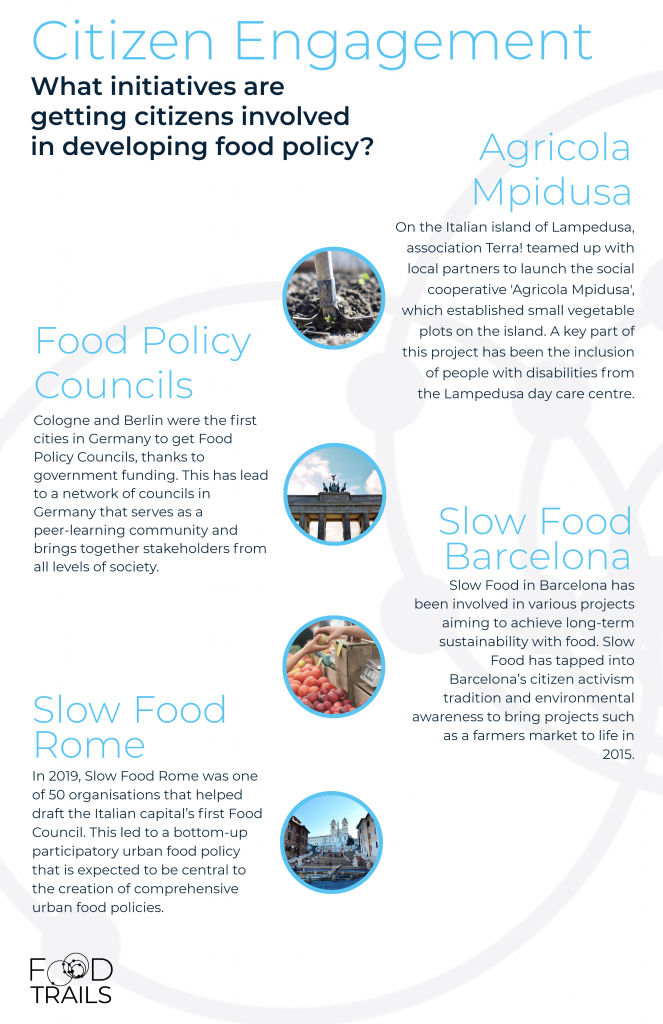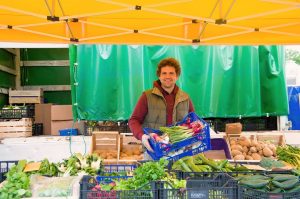People make cities. And increasingly, people make policy in cities. This is the message from research carried out by Food Trails into the co-creation of food-related policy in cities across Europe.
Five cities – Aarhus (DK), Barcelona (ES), Ghent (BE), Glasgow (UK) and Wroclaw (PL) – and four organisations from Italy, Germany and Spain shared their experiences with getting people on-board to craft food policy that works for them.
Their experience highlights the value of certain structures such as Food Policy Councils in getting people involved, but also sends a reminder that political will and support from municipalities are the only thing that can bring about consistent engagement.
What’s more, cities with strong histories of citizen engagement stand to gain the most from pushing for more citizen engagement in creating policies around food, the report showed.
The research was carried out by Food Trails partners Slow Food and Roskilde University. Yaël Pantzer, Policy Officer at Slow Food, said: “Municipalities have the power to support and foster citizens’ participation in the design of food policies. Any kind of support for participation, through financial means or facilitation, implies a political will and strategic choice to knowingly ensure all relevant stakeholders are involved in the process.”
What’s more, involving people from all walks of life in these discussions makes for more inclusive and effective food policies.
Based on the research results, Food Trails has established a series of recommendations for cities looking to increase citizen engagement in food policymaking:
- A Food Policy Council can be an essential tool for cities to ensure wide participation in the forming of food policies that will affect citizens. Cities should therefore establish their own council or support existing ones.
- Communication and engagement are crucial: Those affected by cities’ food policy should be aware of ongoing projects and of these projects’ potential benefits. To do this, engagement through platforms such as social media is key, along with the use of local leaders to engage marginalised communities. Cities should also involve organisations, academia and external experts as much as possible, ensuring they can easily engage with city governments on food-related topics.
- Knowledge sharing should be systematic, widespread and should happen through many channels. This can be formally and informally, across departments in a city administration or between city administrations.
You can read about each city’s and organisation’s experience with citizen engagement in our two infographics below.









